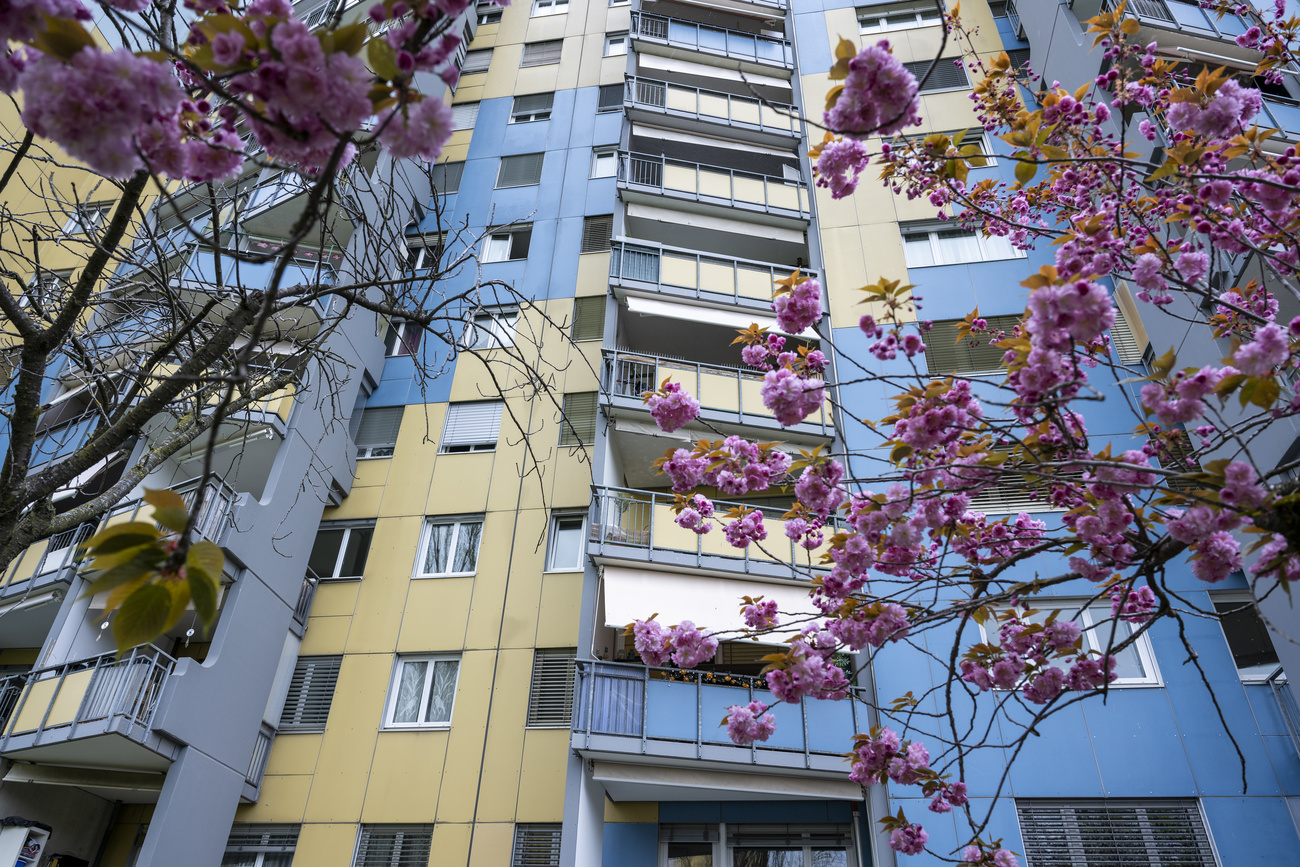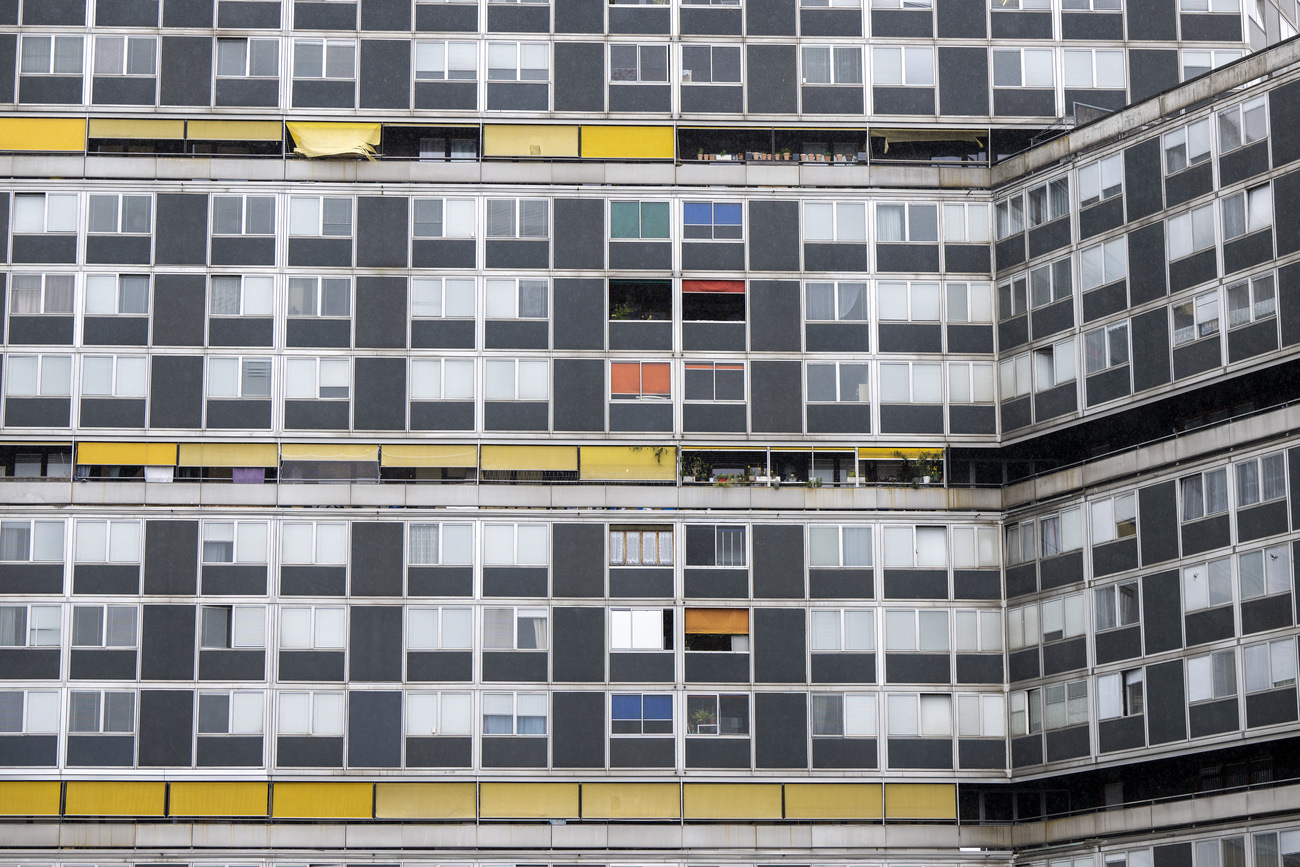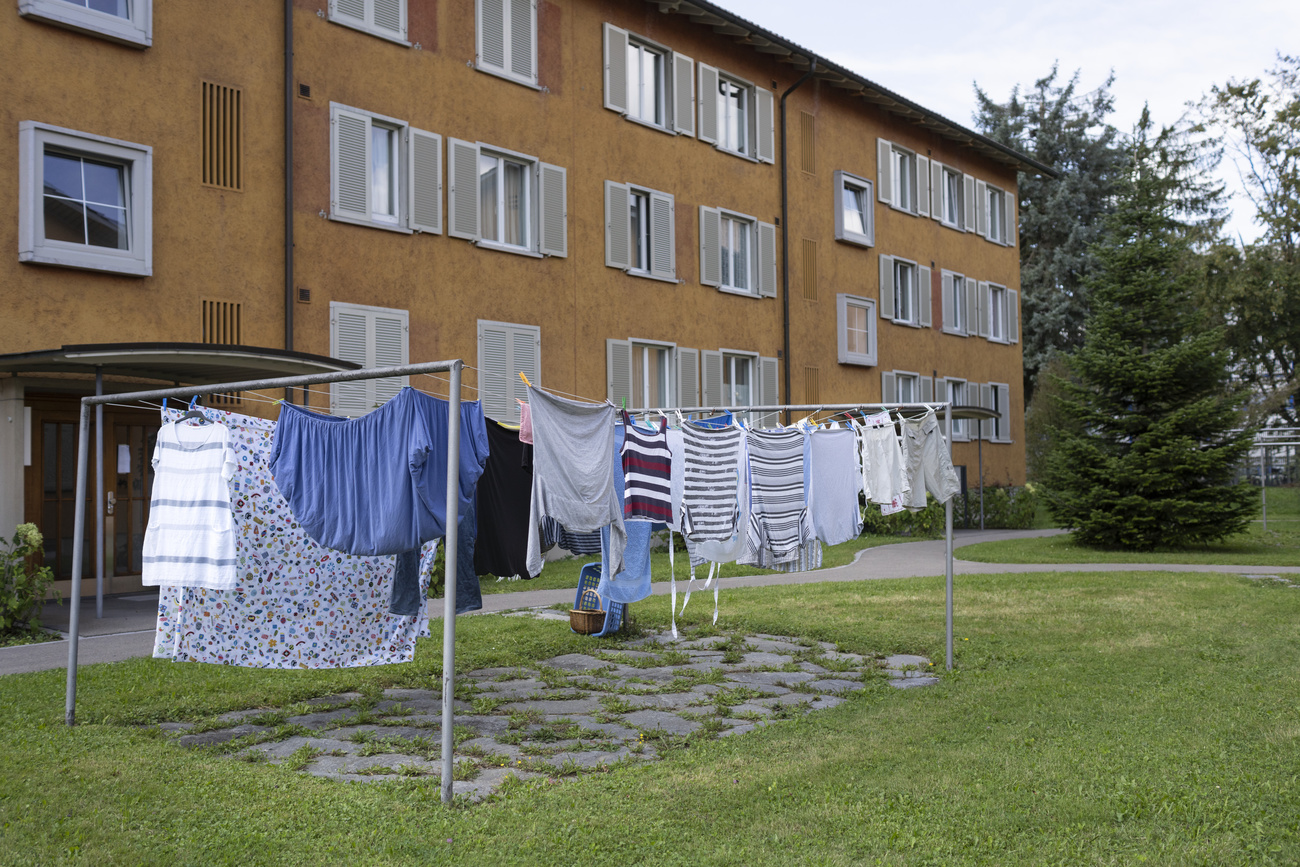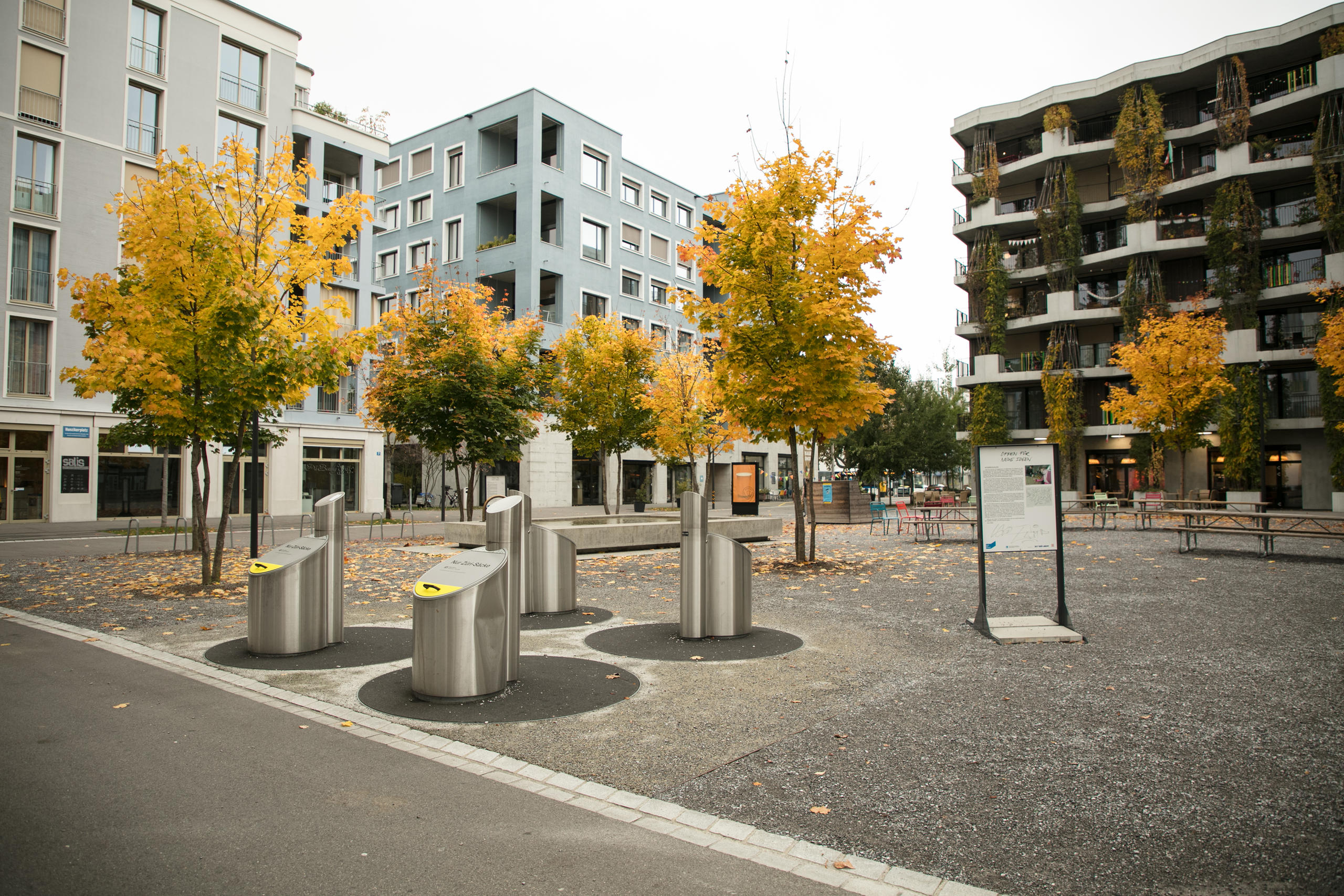Golden cages and rising rates: headaches for the Swiss rental market

In Switzerland, like in many wealthy countries, rents are only heading in one direction. What’s next for the land of tenants?
The situation – rising rents ahead
This Friday, some expect the Swiss mortgage reference rate to be bumped up, from 1.5% to 1.75%, to reflect a previous hike of the Swiss National Bank’s policy interest rate. The small shift could have a big impact: a quarter percentage-point rise legally allows landlords to lift rents by 3%. And with the rate having already climbed from 1.25% to 1.5% in June, after years of steady decline, the government warns that rents could now jump by 15% in the next years – after increasing by over 8% since 2016.
As prices also rise elsewhere – such as in healthcare – the rental market is coming into the political spotlight. Especially since Switzerland (as the New York Times recently discoveredExternal link) is a tenant’s nation par excellence; 58% of people here are renters. However, nobody seems to agree on what the major cause of the trend is: the rising interest rates, unscrupulous landlords, lack of construction, immigration? Or are things actually not – yet – as bad as they seem?

More
‘Myth’ of spiking Swiss rents comes under scrutiny
The government’s plan – less inflation, more transparency
The Federal Council at least is concerned enough to have taken action. Last week, Economics Minister Guy Parmelin presented a planExternal link which includes lowering the threshold for how much inflation costs landlords can pass on to tenants (from 40% to 28%); he also wants more transparency on justifying rent levels. And while the government doesn’t intend to freeze the reference rate (as tenants’ groups want), it does want to analyse whether the entire 40-year-old system of rent adjustment rules is still viable.
No sooner was it announced, however, than the plan faced scepticism. “Landlords are not the cause of the rise in [general living] costs,” the home-owners’ association wroteExternal link. Existing rent rules, and how to appeal changes, were “already transparent”, it said; new rules would bring unneeded complications. Tenant representatives meanwhile said the proposal – and especially its time frame – wasn’t ambitious enough: Social Democrat politician Jessica Jaccoud told Swiss public television, RTS, that by the time it might finally come into force, in 2025, tenants will already have faced various “waves” of rent hikes.

More
Wealthy Switzerland is a country of tenants
Tenant groups – referendum in the works
Tenants’ association ASLOCA – of which Jaccoud is a member – has long complained that while the reference rate for rents has (until now) gone steadily down, actual rents have been steadily rising – unjustifiably, in its view. ASLOCA claims that landlords squeeze out over CHF10 billion ($11.5 billion) in unjustifiably high rents each year. That said, it hasn’t managed to turn its claims into political progress: most recently, a flurry of left-wing proposals to introduce tighter rent controls was rejected by parliament in September.
ASLOCA may, however, have more success in challenging two other – not necessarily rent-price-related – issues. This week, the group said it had managed to gather enough signatures to force referendums on two recent reforms: one which weakens tenants’ ability to sub-let their apartment, and another which makes it easier for landlords to evict tenants when they want to use the property themselves. The signatures (50,000 are necessary for a vote) will be handed in in January, ASLOCA says. The population is likely to decide on the issues at some point next year.
Tenants – sit tight in the ‘golden cage’?
In a situation of low availability and high prices, especially in cities, one thing tenants are not currently incentivised to do is move – especially since regulations are more beneficial to long-term rentals. A recent study by the Zurich Cantonal Bank found that the difference in price between existing rentals and new ones in Zurich was 26%; if you move, you’re only likely to find a smaller (or shabbier or worse-located) place for the same money. In Geneva, this “moving premium” is 54%. However, it’s too early to say if this will lead to tenants opting to become long-term squatters in their flats: last year, at least, roughly the same proportionExternal link moved home as in previous years – 9.5%.
One thing tenants are doing is complaining. The Federal Office for Housing said last week that 42% more appeals against rental adjustments were lodged in the first six months of 2023 compared to 2022. Another approach seems to be to try out cheaper forms of living, for example in cooperative housing or shared flats – including inter-generationalExternal link ones. According to the Wüest Partner real estate firm, three- and four-person households are again on the rise in Switzerland, at the expense of the previously booming one- and two-person households.

More
Cooperative living: a hip alternative for the Swiss
Elsewhere in Europe – Berlin as (radical) ideas lab
Internationally, many countries have been facing even steeper rent hikes than the Swiss. Since 2010, Eurostat saysExternal link, rents increased by 17% across the European Union, jumping by over 50% in Hungary, Iceland, Ireland, Estonia and Lithuania. Only Greece and Cyprus saw rents fall in the past decade. This has led to various regulation efforts: cities in particular have clamped down on short-term rentals via platforms such as Airbnb; some countries (such as IrelandExternal link and the UKExternal link) have been exploring legislation to stop unwarranted evictions.
In Switzerland’s neighbour Germany, where rent prices are rising and social housing is at an all-time low, the government recently proposed a €45 billion (CHF43.2 billion) package for the struggling construction industry; it also plans to pump €18 billion into affordable housing by 2027. This comes after a 2015-introduced national rent cap was easily dodged by landlords, Deutsche Welle reportsExternal link – especially in Berlin, where rents have risen by 44% in the past seven years (wages have climbed 30% during the same period).
An all-out freeze on rent prices, introduced by Berlin in 2020, meanwhile turned out to have a negative impact on the level of new housing and was later deemed unconstitutional, Reuters writesExternal link. However, Berlin remains at the forefront when it comes to radical proposals: in 2021, a majority of voters in the city backed – in a non-binding referendum – an idea to expropriate thousands of properties belonging to big real estate companies. Politicians have since been cagey about the practicality of the idea, even after an expert panel clarified its legality; as of now, it’s unclear what will come of it.

In compliance with the JTI standards
More: SWI swissinfo.ch certified by the Journalism Trust Initiative









You can find an overview of ongoing debates with our journalists here . Please join us!
If you want to start a conversation about a topic raised in this article or want to report factual errors, email us at english@swissinfo.ch.